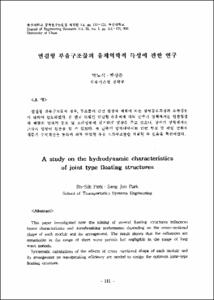청소년비행과 성격양상 및 가족역동간의 관계
- Alternative Title
- Correlation between Delinquent and their Character Pattern and Family Dynamics
- Abstract
- The present study was intended to explore the correlation between juvenile delinquent behavior and their character, mood state and family dynamics. Data were collected through questionnaire survey. Subjects served for this study consisted of 1,838 adolescents including 601 juvenile delinquents and 1,237 adolescent students in Korea, sampled from Korean student population and adolescent delinquent population confined in juvenile correctional institutions, using nonprobability samping method.
Their age ranged between 12 and 21. The actual number of cases put into the analysis was 1,696 adolescents including 511 delinquents and 1,185 adolescent students. Data were analysed by IBM PC of Behavioral Science Center at the Korea University, using SAS program. Statistical methods employed were χ²test, simple correlation, principal component analysis, principal component regression analysis and LISREL path analysis.
The results of this study were follows:
1. Inconsistent by parental child rearing patterns tended to affect delinquent behavior among delinquent adolescents. The more were paternal and maternal attitudes arbitrary, restricted, mistrusing their children and punishment-oriented, the higher occured their children's delinquent behavior. On the other hand, adolescent students were consistently rearing by their parents, their parental attitudes were democratic, flexible, trusting their children and reward-oriented. In comparison of both parents in the degree of influence on their children was revealed that paternal child rearing pattern was more influential on their children's behaviors than maternals's.
2. The psychological instability of family tended to be contributing to deliquent behaviors among deinquent adolescents. Coldness, dissatisfaction, discord, tenseness and disharmony of family paychological climate revealed significant correlation with delinquent behaviors. On the other hand, student's family stability was more comforable than delinquent family.
3. The disharmonious parent-child relationships were presented to influence on delinquent behaviors and aggressive impulsiveness. Parental rejection toward their children's opinions, lack of affection toward their children, non-self-sacrificing for their children, alienated parent-child relationship, children's disregard toward their parental authority and children's rejection of parental opinions were positively correlated to behavioral problems among delinquent adolescents, while harmonious parent-child relationships among student adolescents were maintained.
4. The whole psychological climates of delinquent's family tended to be rigid, while student's psychological climates of family flexible.
5. Delinquents were more anxious, aggressive and impulsive than student adolescents. They exhibited some learning problems such as interpersonal difficulties. their character patterns tended to be immature and weak ego functioning, while student's character patterns more mature and flexible.
6. The relative comparison of the whole psychological climates of family, anxiety trait, character pattern and social learning ability in terms of predictability revealed that character pattern variables function as the most important determinant of both aggressive impulsiveness and delinquent(aggressive) behaviors.
The present study was intended to explore the correlation between juvenile delinquent behavior and their character, mood state and family dynamics. Data were collected through questionnaire survey. Subjects served for this study consisted of 1,838 adolescents including 601 juvenile delinquents and 1,237 adolescent students in Korea, sampled from Korean student population and adolescent delinquent population confined in juvenile correctional institutions, using nonprobability samping method.
Their age ranged between 12 and 21. The actual number of cases put into the analysis was 1,696 adolescents including 511 delinquents and 1,185 adolescent students. Data were analysed by IBM PC of Behavioral Science Center at the Korea University, using SAS program. Statistical methods employed were χ²test, simple correlation, principal component analysis, principal component regression analysis and LISREL path analysis.
The results of this study were follows:
1. Inconsistent by parental child rearing patterns tended to affect delinquent behavior among delinquent adolescents. The more were paternal and maternal attitudes arbitrary, restricted, mistrusing their children and punishment-oriented, the higher occured their children's delinquent behavior. On the other hand, adolescent students were consistently rearing by their parents, their parental attitudes were democratic, flexible, trusting their children and reward-oriented. In comparison of both parents in the degree of influence on their children was revealed that paternal child rearing pattern was more influential on their children's behaviors than maternals's.
2. The psychological instability of family tended to be contributing to deliquent behaviors among deinquent adolescents. Coldness, dissatisfaction, discord, tenseness and disharmony of family paychological climate revealed significant correlation with delinquent behaviors. On the other hand, student's family stability was more comforable than delinquent family.
3. The disharmonious parent-child relationships were presented to influence on delinquent behaviors and aggressive impulsiveness. Parental rejection toward their children's opinions, lack of affection toward their children, non-self-sacrificing for their children, alienated parent-child relationship, children's disregard toward their parental authority and children's rejection of parental opinions were positively correlated to behavioral problems among delinquent adolescents, while harmonious parent-child relationships among student adolescents were maintained.
4. The whole psychological climates of delinquent's family tended to be rigid, while student's psychological climates of family flexible.
5. Delinquents were more anxious, aggressive and impulsive than student adolescents. They exhibited some learning problems such as interpersonal difficulties. their character patterns tended to be immature and weak ego functioning, while student's character patterns more mature and flexible.
6. The relative comparison of the whole psychological climates of family, anxiety trait, character pattern and social learning ability in terms of predictability revealed that character pattern variables function as the most important determinant of both aggressive impulsiveness and delinquent(aggressive) behaviors.
- Issued Date
- 1992
- Type
- Research Laboratory
- Alternative Author(s)
- Kim, Hun-Soo; Min, Byung-Kun; Kim, Hyun-Sil
- Publisher
- 울산의대학술지
- Language
- kor
- Rights
- 울산대학교 저작물은 저작권에 의해 보호받습니다.
- Citation Volume
- 1
- Citation Number
- 1
- Citation Start Page
- 188
- Citation End Page
- 205
- Appears in Collections:
- Research Laboratory > The ULSAN university medical journal
- 파일 목록
-
-
Download
 000002024438.pdf
기타 데이터 / 654.23 kB / Adobe PDF
000002024438.pdf
기타 데이터 / 654.23 kB / Adobe PDF
-
Items in Repository are protected by copyright, with all rights reserved, unless otherwise indicated.